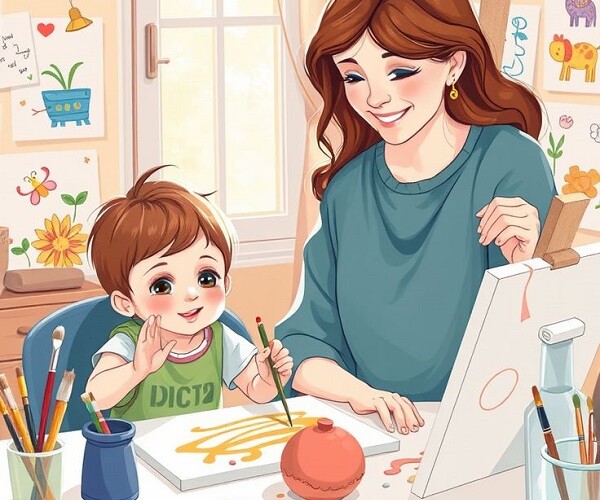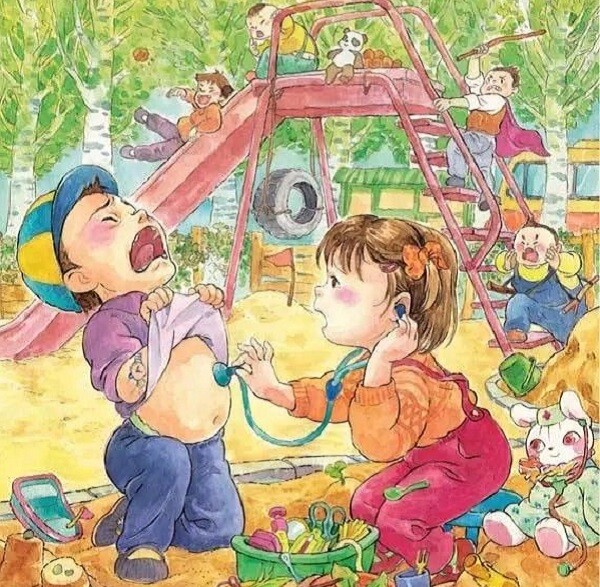It’s fascinating to note that children who are deemed “difficult” often exhibit superior learning abilities, creativity, and independent thinking as they grow up. There’s even a popular belief that naughty children tend to be more intelligent.
Interestingly, several scientific studies support this notion. Curious and energetic children tend to explore their surroundings more profoundly.

For instance, let’s consider the research conducted by Dr. Ellen Galinsky from Harvard University. Her study revealed that 85% of curious children demonstrated better learning abilities in school, achieving scores 10-15% higher than their less curious peers.
Galinsky asserts that naughty children often possess superior learning capabilities. These children tend to ask questions and seek answers, thereby developing critical thinking skills. She emphasizes the importance of exploration and experimentation in cognitive development.
Hence, experts argue that “difficult but intelligent” children often exhibit three distinct characteristics from infancy.

Signs of “unusual” behavior indicate positive brain development

Children with higher demands
Psychologists categorize infants into two groups: high-demand infants and low-demand infants.
High-demand infants tend to exhibit the following characteristics:
Less sleep and easily awakened: Their brains are active and sensitive to external stimuli, making it challenging to fall into a deep sleep.
Curiosity: They are eager to explore their surroundings, showing a propensity for touching, observing, and imitating.
Emotionally intense: These infants are quick to cry over minor issues but also display more positive emotions, expressing their feelings more intensely.
In contrast, low-demand infants are easier to satisfy and adapt, but they show less reaction to novel stimuli. Research indicates that high-demand infants’ brains develop faster due to their constant engagement with and response to external stimuli.
This “difficult to raise” behavior is a sign of rapid intellectual development.
Crying infants may be more intelligent
Many parents may view crying as a sign of naughtiness, but in reality, crying is a critical way for infants to express their needs. The American Academy of Pediatrics (AAP) states that crying infants often possess the following characteristics:
Superior perception: They are more sensitive to changes in sound, light, temperature, and can detect environmental differences faster.
Early language development: Frequent vocalizations exercise their oral muscles, enabling them to speak earlier than their peers.
Enhanced social skills: Crying to attract attention is a form of practicing interaction with others.
A Harvard study tracking 1,000 infants found that those who displayed higher sensitivity and emotional intensity in infancy scored higher on cognitive tests at age five.

This “difficult to raise” behavior is a positive indicator of rapid cognitive development.
Unruly children are more creative
While many parents hope for obedient children, those who are overly compliant may lack independent thinking skills.
In contrast, unruly children who constantly ask “why” possess stronger logical thinking and creative abilities.
For example:
Tendency to dismantle objects: These children are inclined to explore the structure and function of objects.
Resistance to mechanical repetition: They dislike rote learning and prefer to discover answers independently.
Challenging rules: Questioning “why we must do this?” is the foundation of innovation.
As a child, Einstein was labeled “undisciplined” by his teachers because he constantly questioned and was unsatisfied with standard answers. His example illustrates that such children often excel at independent thinking.

How to guide naughty children to harness their intelligence positively?
If you have a challenging child, don’t worry. Here’s how you can guide them:
Provide diverse stimulation: Expose your child to a variety of toys with different colors, sounds, and textures to promote sensory development.
Allow moderate exploration and freedom: Within safe boundaries, let your child experiment freely, even if it means getting dirty or making a mess.

They tend to explore the structure and function of objects.
Respond to demands patiently: High-demand infants require more emotional interaction and timely responses to strengthen their sense of security.
Foster concentration: Through games like puzzles and Lego, teach your child how to focus on a task.
Based on developmental psychology observations, curious and crying children often have more active brains and higher learning potential.
Therefore, parents should embrace their children’s natural tendencies and patiently guide them. Sometimes, creating minor “troubles” can provide the right conditions for their growth.
The Harvard Study: How Birth Month Impacts a Child’s Future Success
A groundbreaking study from Harvard University reveals an intriguing connection between a child’s birth month and their future potential for success. This article delves into the fascinating insights uncovered by this research, offering parents valuable guidance on nurturing their children’s development and maximizing their chances of future prosperity.




































